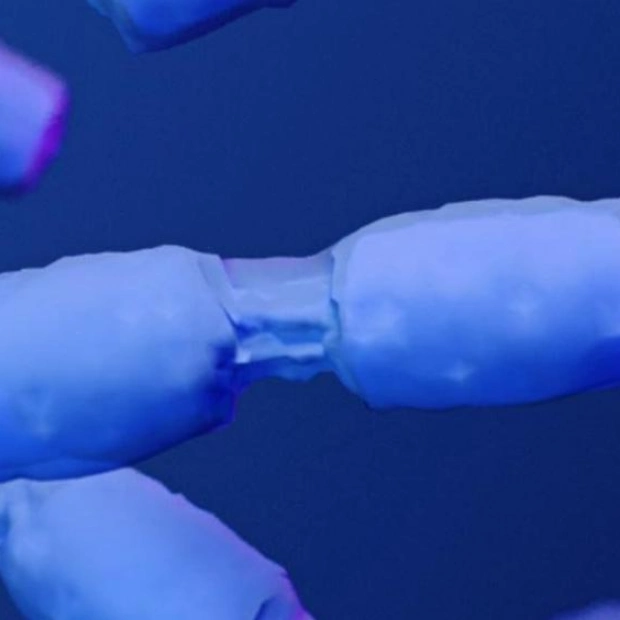A boy cycles past shuttered shops in Sidon after pager explosions across Lebanon on September 18, 2024. — Reuters
The batteries in the weaponized pagers that reached Lebanon at the beginning of the year, part of an Israeli plan to cripple Hezbollah, had a deceptive power and a critical flaw. The agents who crafted these pagers designed a battery concealing a small but potent charge of plastic explosive and an innovative detonator invisible to X-ray, according to a Lebanese source with direct knowledge of the pagers and teardown photos viewed by Reuters. To address the weakness—the lack of a credible backstory for the bulky new product—they fabricated fake online stores, pages, and posts to deceive Hezbollah's due diligence, as evidenced by a Reuters review of web archives. The covert design of the pager bomb and the battery's meticulously constructed cover story, revealed here for the first time, illuminate the execution of a years-long operation that has dealt unprecedented blows to Israel's Iran-backed Lebanese adversary and brought the Middle East closer to a regional conflict. A thin, square sheet containing six grams of white pentaerythritol tetranitrate (PETN) plastic explosive was sandwiched between two rectangular battery cells, according to the Lebanese source and photos. The remaining space between the battery cells, not visible in the photos, was filled with a strip of highly flammable material acting as the detonator, the source said. This three-layer assembly was inserted into a black plastic sleeve and encased in a metal casing roughly the size of a matchbox, as shown in the photos. The design was unconventional as it did not use a standard miniaturized detonator, typically a metallic cylinder, according to the source and two bomb experts who spoke on condition of anonymity. Without any metal components, the material used to trigger detonation had an advantage: like the plastic explosives, it was not detected by X-ray. Upon receiving the pagers in February, Hezbollah checked for explosives, running them through airport security scanners to see if they triggered alarms. No suspicious activity was reported. The devices were likely configured to generate a spark within the battery pack, sufficient to ignite the detonating material and trigger the PETN sheet to explode, according to the two bomb experts who reviewed the pager-bomb design for Reuters. Since explosives and wrapping occupied about a third of the volume, the battery pack carried a fraction of the power consistent with its 35-gram weight, according to two battery experts. "There is a significant amount of unaccounted-for mass," said Paul Christensen, an expert in lithium batteries at Britain’s Newcastle University. At some point, Hezbollah noticed the battery was draining faster than expected, the Lebanese source said. However, this issue did not raise major security concerns—the group continued to distribute the pagers to its members hours before the attack. On September 17, thousands of pagers simultaneously exploded in the southern suburbs of Beirut and other Hezbollah strongholds, often after the devices beeped, signaling an incoming message. Among the victims rushed to the hospital, many had eye injuries, missing fingers, or gaping wounds in their abdomens, indicating their proximity to the devices at the time of detonation, according to Reuters witnesses. In total, the pager attack, followed by a second attack involving weaponized walkie-talkies the next day, killed 39 people and wounded more than 3,400. Two Western security sources said the Israeli intelligence agency Mossad orchestrated the pager and walkie-talkie attacks. Reuters could not determine where the devices were manufactured. The office of Israeli Prime Minister Benjamin Netanyahu, which oversees Mossad, did not respond to a request for comment. Lebanon’s Information Ministry and a spokesperson for Hezbollah declined to comment for this article. Israel has neither denied nor confirmed involvement. The day after the attacks, Israeli Defense Minister Yoav Gallant praised Mossad's "very impressive" results in comments widely interpreted in Israel as tacit acknowledgment of the agency's role. US officials said they were not informed of the operation in advance.
From the outside, the pager’s power source appeared as a standard lithium-ion battery pack used in countless consumer electronics. However, the battery, labeled LI-BT783, had a significant issue: it did not exist in the market. Thus, Israel's agents had to create a backstory from scratch. Hezbollah has rigorous procurement procedures to verify what they purchase, a former Israeli intelligence officer, not involved in the pager operation, told Reuters. "You want to ensure that if they look, they find something," the former spy said, requesting anonymity. "Not finding anything is not good." Crafting backstories, or “legends,” for undercover agents has long been a fundamental skill of spy agencies. What made the pager plot unique is that these skills were applied to ubiquitous consumer electronics products. For the pagers, the agents deceived Hezbollah by marketing the custom-created model, AR-924, under an existing, reputable Taiwanese brand, Gold Apollo. Gold Apollo’s chairman, Hsu Ching-kuang, told reporters a day after the pager attack that he was approached about three years ago by a former employee, Teresa Wu, and her “big boss, called Tom,” to discuss a licensing agreement. Hsu said he had limited information about Wu’s superior but granted them the right to design their own products and market them under the widely distributed Gold Apollo brand. Reuters could not verify the identity of the manager or whether the person or Wu knowingly collaborated with Israeli intelligence. The chairman said he was unimpressed by the AR-924 when he saw it but still added photos and a description of the product to his company’s website, enhancing its visibility and credibility. There was no direct way to purchase the AR-924 from his website. Hsu said he was unaware of the pagers’ lethal capabilities or the broader operation targeting Hezbollah. He described his company as a victim of the plot. Gold Apollo declined to provide further comment. Calls and messages to Wu went unanswered. She has not issued a statement to the media since the attacks. Hezbollah's investigations have revealed how Israeli agents used an aggressive sales tactic to ensure Hezbollah’s procurement manager selected the AR-924, according to one of the people familiar with the matter. The salesperson who presented the offer made a very inexpensive proposition for the pagers, "and kept lowering the price until he was drawn in," the person said.






